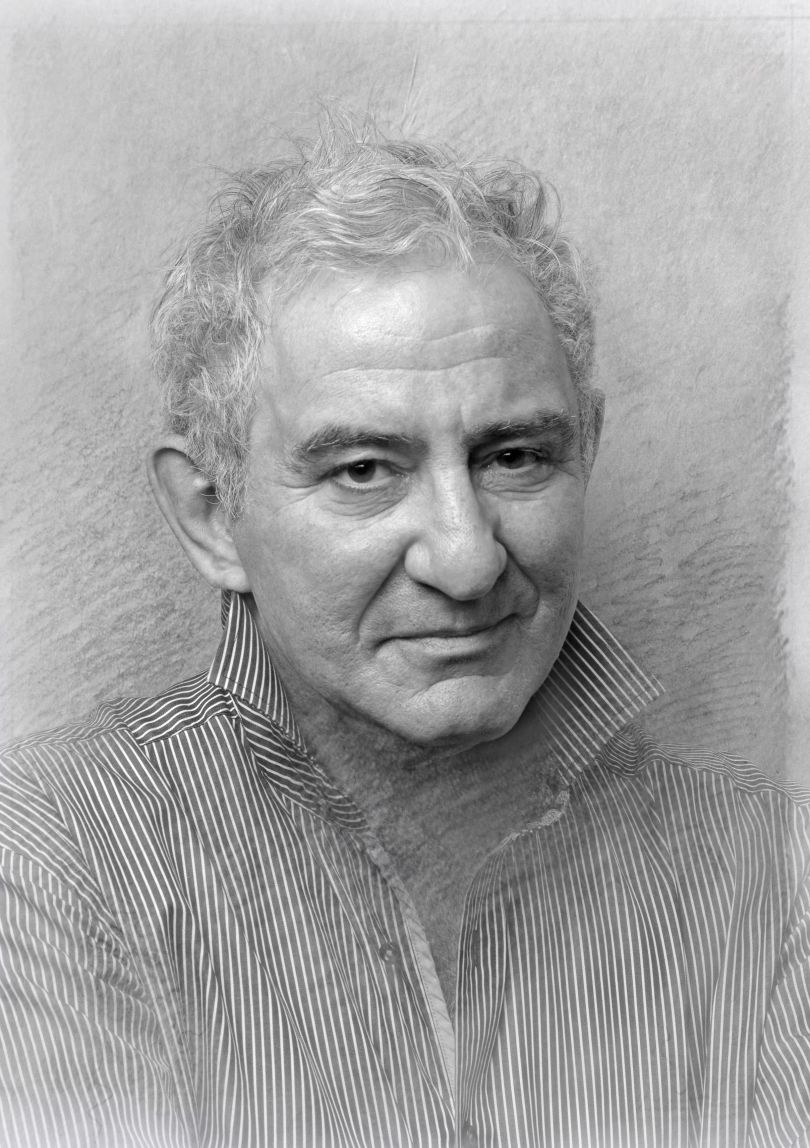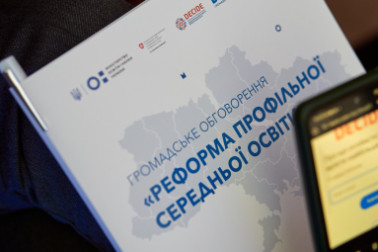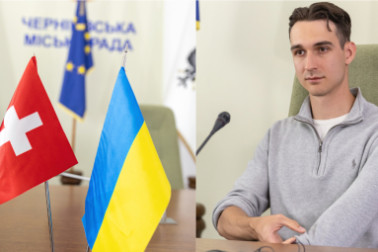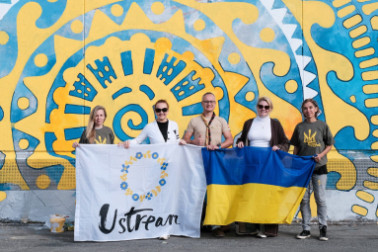Undoubtedly, there emerges a certain extraordinary aura, revelations, a moment of truth, understanding, and the beauty of communication. See for yourself. So, the master of photography
Svitlana Khvostenko, the artist Natalia Korobova, and their incredible interlocutor Mikhailo Kazinik.
Svitlana Khvostenko: Mikhailo Semenovich, we live in Zaporizhia, and the front line is very close by. Every day we hear sirens and explosions. People are dying, homes are being destroyed, and many are wounded and exhausted. But we resist the enemy, both morally and in other ways. All our people contribute to the victory: one is involved in volunteering, and another sews, knits, and cooks for the military. The third delivers all of this to the front line. Someone else donates money to the army. And despite the enemy, cultural life continues. Even jazz concerts take place. I am now talking about our strength, unity, and cohesion. In Zaporizhia, we witness the realization of the ancient Cossack self-organization system. And it works perfectly. What do you think, is such self-organization of people on a global scale possible to counter evil? Can people come together to save our fragile planet?
Mikhailo Kazinik: If aliens attacked our planet, maybe we would unite. But what you're talking about is a beautiful utopia.
You know, the Marxist idea seemed to have a chance to be implemented. Theoretically, if you cultivate "human seeds" under the same conditions, they should grow into equal and identical individuals. People believed in it. Then the "criminal" science appeared - genetics, which in the USSR was denounced as bourgeois pseudoscience because it undermined the Marxist-Leninist idea that people could be the same, like plants planted in the same soil and receiving the same conditions. It was beautifully envisioned: equal, proud people. Look at the illustrations in the children's encyclopedia of the Khrushchev era, where they depict images of the desired communism: perfect blond women, tall Aryan men, and equally fair-skinned children. Helicopters and spaceships fly around them. They proudly walk on the ground. They are all equal. And it would have been beautiful if it were true. Unfortunately, to my great regret, people are not equal by nature. They can be divided, metaphorically, on a scale from the untalented at the bottom to geniuses at the top. And between intellectuals and untalented individuals, there are countless variations. That's why humanity cannot stand as a "united front." As soon as geniuses conceive something progressive (which often looks like utopia), they are not accepted; they are considered mad, almost like the untalented. Therefore, such unity is impossible.
Svitlana Khvostenko: What is Ukraine's mission now, in your opinion?
Mikhailo Kazinik: Ukraine's mission, of course, is to stand firm and triumph! And the terrible thing that happened to Russia didn't start now but in 1917. And this process never stopped for a second. Because if you take any modern person whose family originated from the USSR and look at their genealogy, you would discover that the NKVD destroyed their grandfather, and their great-grandfather was killed... Half of my relatives were burned in a barn by police officers, and the other half perished in the Gulag. We are surrounded by holes. And this horror lasted for many generations. Was there any repentance after Stalinism? No! There was no repentance. After they declared communism was not real, did they dissolve the Communist Party? No. Did they provide an explanation? No. Did the common people repent? No. There was no trial, and there was no lustration. And as a result, who do we see in power in Russia? It's irreparable. It cannot be saved; it cannot be transformed.
Moreover, the people who have constantly been accustomed to hearing, "Marxist doctrine is all-powerful because it is correct" never demanded any proof! In the end, I dare say that the majority of the population in Russia is no longer a people and is practically incapable of perceiving independent thought. Why does propagandist Solovyov behave so audaciously? Supposedly, he spits out sunflower seeds at us from the screen... And he does this to be understood by the common people who, in 100 years, have been reduced to the level of serfs. Everything is meticulously planned down to the smallest details. Every day, this criminal propaganda engulfs tens of thousands of gullible souls. It is a gigantic viral disease that has engulfed the country. Such a disease already showed itself in 1937 when everyone who wasn't arrested was considered temporarily unarrested. People developed spy mania and paranoia. And paranoia is a disease that makes you believe that an American agent is sitting behind every bush and he is either Jewish or Ukrainian. And they all want to destroy the "great holy country" that leads all the achievements of humaneness and beauty. And all of this is the realm of absurdity! I don't see a way out of this yet.

Mykhailo Kazinik: Of course, but first, those who want it should come to me with a proposal for such a school. But here arises a new complexity. If earlier, while traveling through beloved Ukraine, I spoke Russian with everyone, now, sorry, I can't rely on many moments of art, culture, and literature associated with the Russian language. I understand: there's a war going on now. And it's a sharp, painful issue. But when the war ends, we must calm down and say, "Guys! Tchaikovsky is not guilty! And Chekhov is not guilty! Moreover, those who killed and raped you never heard of Tchaikovsky, they don't know."
For example, you live in Zaporizhia. And do you know that Zaporizhia is the homeland of Tchaikovsky's ancestors? During musical lectures on the ballet "The Nutcracker" and other works by the composer, I show that just a few bars are enough to understand: we have a genius here. And how many Ukrainian melodies he has! Tchaikovsky's first piano concerto is stunning! By the way, its original name was "Concerto on Ukrainian Themes."
An extraordinary, unique character in world literature - Solokha from Gogol's "Evenings on a Farm Near Dikanka." Who is Solokha? On the one hand, she's a witch, with all the horror for an Orthodox reader. But, excuse me, she's Vakula's mother, the main positive character. It's brilliant! It's the literature of the future! And it came from Ukraine! And who hides in Solokha's sacks? Representatives of which social classes are her unfortunate lovers? The head - is secular authority, the deacon - is ecclesiastical authority, and Chub - is capital. Solokha is purely Ukrainian. And in Bulgakov's works, the Ukrainian is felt, no matter how much they shout, that he allegedly didn't love Ukraine. But I can say in response that Glinka hated Russia. And that will be the truth that was concealed for many years. He was tormented and humiliated so much that when he left Russia and they "kicked" him at the border, as soon as he crossed the barrier, he undressed completely, threw his clothes onto Russian territory, spat there, and went to the store to dress in foreign clothes so that there wouldn't be a trace of Russian spirit! And he is a Russian national composer, the author of "A Life for the Tsar," the author of "Ruslan and Lyudmila," and "I Remember a Wonderful Moment." This is Glinka - the holy father of Russian music. But they brought him down!
Natalia Korobova: There is a lot of unconsciousness in art. When an artist or a writer thinks about one thing, something completely different is born in the soul. When I reread Boris Pasternak's "Doctor Zhivago," I felt that the lyrical line had disappeared completely, and I saw everything happening in society's life. It was much more severe and complex than the relationships between Lara and Zhivago.
Mykhailo Kazinik: Of course, Natasha, the same story applies to Anna Karenina. At first, we enthusiastically read Anna's story. Then when we reread this novel in adulthood, we understand that the stories of Karenin or Levin, which we flipped through as uninteresting, are the most important. And then, for example, we begin to understand that "everything was mixed up in the Oblonsky household" - it's about how everything is "mixed up" in Russia. Karenin is trying to reshape and reform Russia. And he fails. Levin is trying to reform his small noble estate and fails too. Because there, as well as here, there is embezzlement, bribery, drunkenness, and lies from beginning to end. They collided with it. That's what the novel is about.
Svitlana Khvostenko: I read Tolstoy's diary and was very disappointed in the author. He was harsh. He mocked his wife... I can't read his works anymore...
Mykhailo Kazinik: Yes, yes... Then don't read. But read Dostoevsky's diaries now. You will feel bad. You will struggle to breathe. But what can you do? Geniuses are often extraterrestrial beings. They don't understand anything in real life on Earth.
Svitlana Khvostenko: Sometimes, it's the opposite. By reading Beethoven's correspondence, I discovered an attentive, grateful, and caring person.
Mykhailo Kazinik: Beethoven is not just a composer; he is the greatest. Having lived most of my life, I believe there was, is, and will be nothing higher than Beethoven. Beethoven was a highly educated person because his teacher, Wolfgang Neffe, an organist, was one of the most educated people of that time, and he instilled in Ludwig a love for antiquity. And he became deeply fascinated by it - for him, Aeschylus, Sophocles, Socrates, and Plato's Dialogues were all norms of life. He delved so deeply into it that he translated it into music. He was a great rhetorician, possessing the skills of the orators of Greece and Rome. Beethoven's music is rhetorical figure; it is the highest rhetoric.
Svitlana Khvostenko: How do you feel about contemporary art, where the most important thing is the concept?
Mykhailo Kazinik: You mentioned "contemporary art," I immediately flinched because contemporary art encompasses so much: geniuses to opportunists. There are brilliant works and those that have latched onto them.
My response to contemporary art cannot be definitive. I have gone through various stages of fascination with artists. And I have changed significantly in the realm of music. So it's hard to say. Greatness is visible from a distance, and I believe time will take away from all this multicolored variety that will remain forever. Because ultimately, the degree of classicism in art is determined by future generations. And those generations will come. They just need to be prepared by knowledgeable people and discerning art appreciators. I would like to do a lot. But again, many things depend on the fact that my lectures are in the Russian language.
Natalia Korobova: We have philosopher Andriy Baumeister. He gives lectures in both Russian and Ukrainian. And there are no complaints about him.
Mykhailo Kazinik: You also have Pustovit. I wrote a preface to his book, stating that he is a "Master of the Bead Game" (a reference to Hermann Hesse's novel "The Glass Bead Game" - editor's note). And he wrote a preface to my new book, "Paradoxes of Geniuses."
Svitlana Khvostenko: Mykhailo Semenovych, over 9 million people have been forced to leave Ukraine. What advice would you give to these people? How to live in a foreign country? How to stop feeling "blown away by the wind"?

Mykhailo Kazinik: Those who have left are different. Some will feel at home and say, "Oh God! What a great country! What was I doing there before? It turns out there is a normal life!" And those who emigrated because they had no other choice will take their entire world of their country with them. And that's also good.
As I've grown older, I've limited my social interactions here to a certain extent. My phone hardly rings anymore; I've handed everything to managers and producers. I'm tired. I'm not very interested in what's happening in Sweden because everything is calm and almost unchanged here. But what's happening in Ukraine deeply concerns me; I immensely love Ukraine.
And I loved Russia very much too. I cannot renounce and say that I never loved it, despite encountering anti-Semitism, idiocy, and communism. But I love my listeners very much; I suffer without them because I cannot go there. And they suffer without me. But they are just a handful of people. My listeners and those close to the arts make up about 0.1%. If there are 140 million people in Russia, then there are 140 thousand of my people there. They are the ones who fill the halls at my concerts, watch films by Tarkovsky and Bergman read real literature. And such a low percentage has come about due to the anti-selection that took place in Russia and Ukraine. So much was destroyed...
Oh God! Even when all the Stalins died, they destroyed your poet Vasyl Stus. It happened in the 1980s. What a personality he was! What poems! Naturally, he fought against Stalinism. And at what times did he die?! If I could, I would have taken him somewhere with me. Ukraine suffered terribly. So many poets and composers perished, labeled as Ukrainian nationalists. I imagine if Russians came to Sweden and declared that anyone speaking the Swedish language is a Swedish nationalist. And they started destroying writers, poets, composers, and artists. It's absurd that the thought arises when you start contemplating it: either you've gone crazy, or the planet has gone wild. How can speaking the Ukrainian language in Ukraine be considered Nazism? It's absurd! It's the sacred right of Ukrainians to speak their native language!
Svitlana Khvostenko: And that's what we're doing. We speak our native language. Mykhailo Semenovych, will Cain and Abel always coexist in one person? "Conquer the centaur within yourself!" as the ancient Greeks used to say. Is that ever possible? To conquer the centaur within oneself, not just for one person, but for a significant portion of the planet's population.
Mykhailo Kazinik: To achieve that, we must stop all wars and build a normal global economy. Only then can we talk about human harmony. But as a result of this war, we have regressed significantly and profoundly.
Svitlana Khvostenko: As we conclude our conversation, I want to say that while talking to you, I have a feeling as if we have flown together in space, effortlessly and freely, discussing various topics. Thank you so much! In Sweden, people like you are called "burning souls," the Ukrainian poet Lina Kostenko wrote: "A person seems not to fly, but has wings. Has wings." I wish you good health! We dream of visiting one of your academies.
Mykhailo Kazinik: Yes, I would be glad. We delve into the depths of art in various places; recently, it was in Barcelona, Paris. Soon there will be an academy in Armenia until we meet again! I embrace you with music! With these three words, I conclude all my performances for many years.







